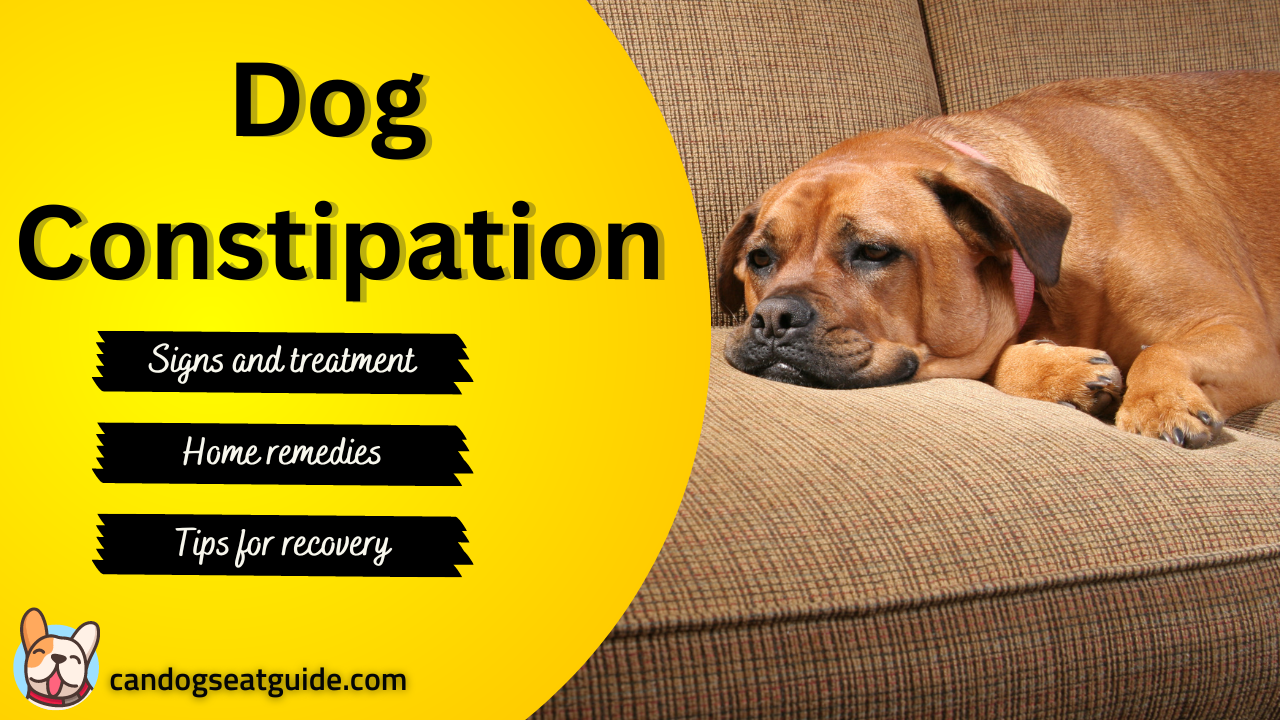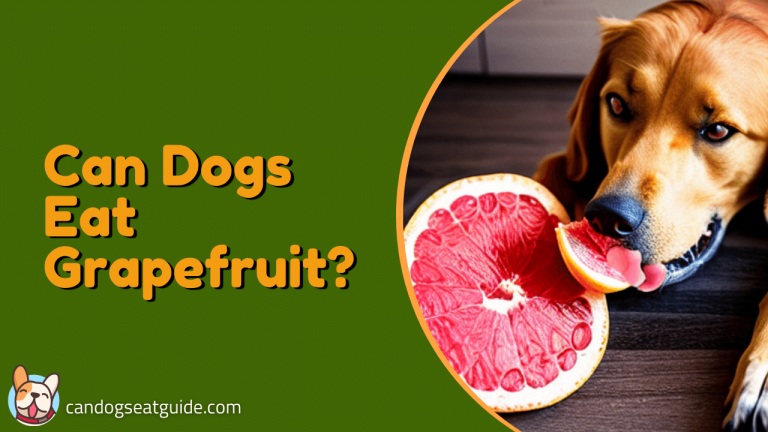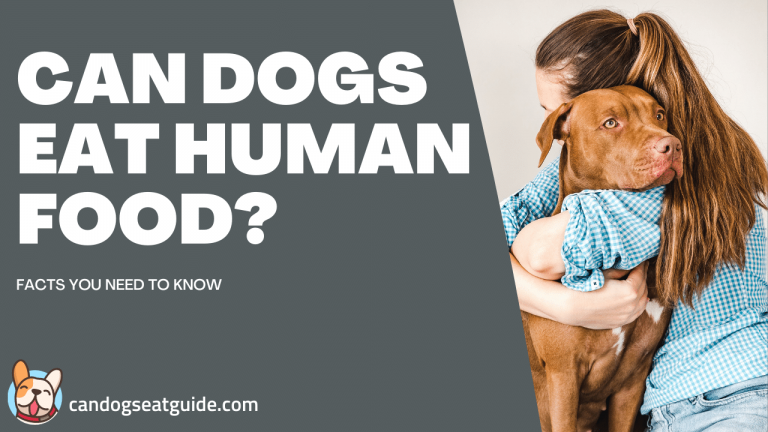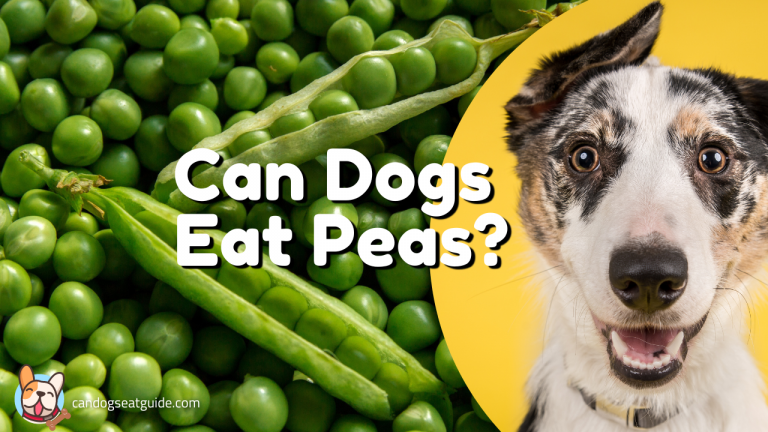Dog constipation isn’t a thing that should be left untreated. If you don’t take fast measures and actions your dog can get the syndrome megacolon that is life-threatening and can cause even more health problems.
While you may wonder what to do, I am here to help you. I will share with you all the information I know and will give you 2 Medicines, 9 home remedies, and 6 tips that really work for dog constipation. They are safe for dogs.
You aren’t alone in that but I want to advise you that whveen you notice constipation in your doggo, let your vet know immediately. If you find blood in dogs’ poop, they are vomiting, or haven’t pooped in the last 24 hours, take quick actions.
What Is Constipation in Dogs?
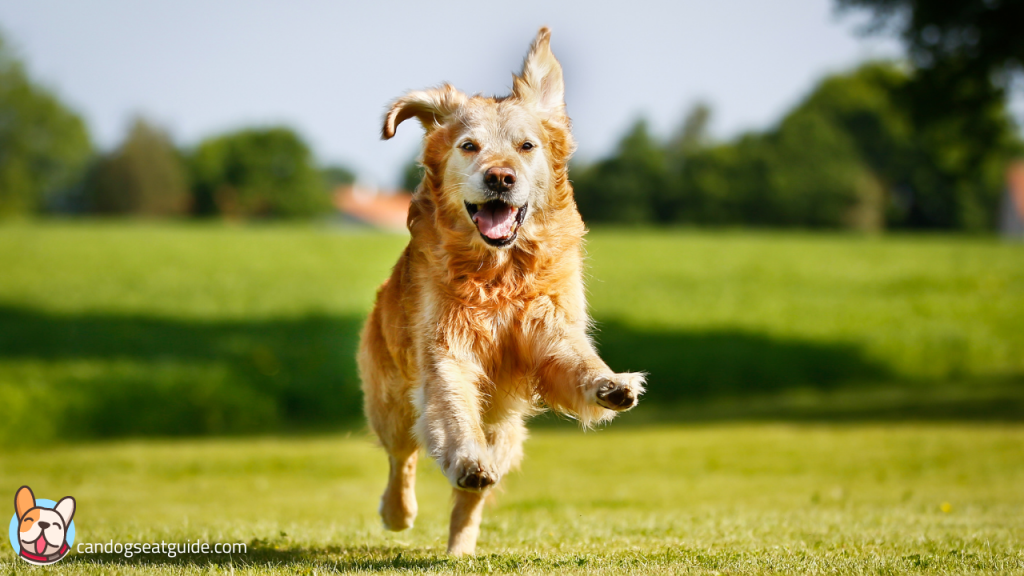
Dog constipation is a common health problem that refers inability to produce a normal stool on regular basis.
Most dogs experience pain when they try to poop.
Obstipation is a severe form of constipation. When constipation occurs frequently despite all the efforts of vets and medicines then it’s referred to as obstipation.
You shouldn’t worry if constipation in your dog comes once in a while, it’s okay.
But if it comes often it’s time for a vet visit.
Signs of Dog Constipation
Some dogs may experience some of these symptoms:
- Straining to defecate;
- Production of less stool;
- Blood in stools;
- Production of harder and drier feces;
- Defecating indoors;
- Pain in the abdomen;
- Passing small amounts of liquid stool.
What Causes Dog Constipation?
Dog constipation can happen if there is not enough fiber in the dog’s diet. Many times it’s an overlooked nutrient that is very beneficial but it should be coming from high-quality ingredients, too. Examples of high quality are green beans or sweet potatoes.
There are two types of fiber and both of them offer many benefits for dogs:
- soluble fiber – creates gases by fermenting in the colon;
- insoluble fiber – absorbs the water as it moves through the digestive tract;
Fiber may reduce the risk of colon cancer as it reduces the exposure to any carcinogens that were consumed by your dog.
Another reason for constipation may be dehydration. Dogs should drink an ounce of water per pound of body weight every day. Polydipsia, excessively drinking water, also can be a sign of health issues in dogs.
Dogs that have a habit of excessively licking or have long hair expose themselves to bacteria in their surrounding environment that may irritate the gastrointestinal tract.
As they get older, they start to get more health problems. It’s normal for older dogs to get more often constipation than young dogs. As the metabolism slows down with the age of dogs too, some food can cause blockage.
Dogs that don’t get enough walking are also exposed to constipation as they can’t regulate bowel movements. A sedentary lifestyle is bad for humans and dogs so let’s move and go for a walk.
So, I am back from the walk with my dog and we can continue our article.
If you give bones to your dog, no matter whether chicken, turkey, beef, or any other kind, stop immediately. They are dangerous for their health as they can splinter while dogs are chewing and they are difficult for the digestive system and can cause constipation.
If your dog is taking any medication like diuretics, antihistamines, or opioids, they can add up to constipation.
Some more serious cases could be metabolic injuries, tumors in the pelvic region, or digestive tract tumors.
What Should I Do If My Dog Has Constipation?
Many ways can help your dog to fight constipation but you should know that sometimes constipation is a serious problem that needs medical assistance.
If dog constipation is right at the beginning – the first or second day – then you can give your dog a few home remedies that may help. Down below I have shared 9 home remedies that I have given to my doggo and I am sure that they are safe for the overall health of our four-legged friends.
When Is The Time For A Vet Appointment?
You should let your vet know as soon as you notice that your dog has constipation. Why? Because they will tell you what to do, what to check, what to wait for to happen, and will ask you if there are any other signs occurring in your dog the last few days.
If you hear your dog crying out in pain, squatting frequently, or feeling that its abdomen is tensed, then what are you waiting for?
Call the vet, NOW!
It’s important for your vet to know about your dog’s situation because it can be mild constipation or a sign of a very dangerous disease.
If it is left untreated constipation can turn into obstipation. Obstipation can be followed by a megacolon. Megacolon is a syndrome that can lead to hypertrophy of the colon. It can be either acute or chronic.
2 Medicines for Dog Constipation
Do not give your dog any human medicines because they can be toxic and treatment should be given only after consultation with the vet!
- Enema
- The enema should be given only by vets;
- It’s injected into the rectum;
- It adds water to the dog’s intestines;
- Stool softeners / Laxatives
- Should be prescribed only from vets with the right dosage;
- Never give human laxatives to dogs as they can be too strong and cause complications.
Signs of Obstipation and Megacolon
The first sign is constipation, but if left untreated then more signs will be shown, like:
- Hard time passing stool;
- Lethargy;
- Loss of weight;
- Straining a lot;
- Lack of appetite;
- Bloody stool;
- Dehydration;
- Vomiting;
- Producing hard and drier feces.
Treatment of Obstipation and Megacolon in Dogs
Veterinarians will advise these treatments first:
- High-diet fiber;
- Intravenous hydration;
- Laxatives;
- Enema – injections of fluids used to cleanse and empty the bowel;
If your dog has obstipation or megacolon your vet maybe will advise you for surgery if the above treatments don’t work out.
How to Diagnose if My Dog Has Obstipation or Megacolon
These two conditions can be diagnosed only by medical observation. The vet will need the dog’s medical history and run some tests.
Tests may be:
- Physical examination;
- X-ray;
- Complete blood count;
- CT scan;
- Biopsy;
- Urinalysis;
- Colonoscopy.
Your vet maybe won’t need all these tests to be done but they need to detect if there are any underlying issues.
Unfortunately, surgery is often the only choice. The surgery is called a subtotal colectomy, in which the majority of the colon is removed. Before surgery shouldn’t be performed enema as it can contaminate the abdomen.
After surgery dog doesn’t eat or drink for 24 hours, then water and moist food are introduced. When the dog goes home it should rest for 3-4 weeks without a lot of physical activity as the scar will take time to heal.
9 Home Remedies for Dog Constipation
Many human foods are very helpful for human and dog constipation. Many of these are tried by me through the years and I will share my own experience, too. But keep in mind all dogs are different and sometimes things that work for my dog won’t work for yours, and vice versa.
Let’s not forget that this site is made to help other dog owners that have the same issues as me.
Many fruits and vegetables can be used against constipation. I am showing you only those that are safe for dogs to consume on daily basis too and won’t cause any additional problems or discomfort to dogs. And remember that they should be given only in small amounts as treats, not as a full meal.
1. Pumpkin
Here we start with the pumpkin.
I will be honest I don’t like pumpkin and no matter how many benefits it has for my health, I won’t eat it.
But my dog loves to eat pumpkins.
That is my first fruit on the list of home remedies for constipation.
Super rich in vitamins like vitamin A, vitamin C, and vitamin E. A great source of minerals like iron and potassium.
The high soluble fiber content is helping the digestive system. A few tablespoons of pumpkin are needed and your dog will be again fine. But if it’s your first time including pumpkin in a dog’s diet then give a very little amount, like 1/2 to 1 teaspoon.
Raw, cooked, or canned pumpkin?
The raw pumpkin should be avoided because it’s difficult to digest, it’s not toxic but our dogs are going through a lot during constipation so no need to add more, right?
Cooked pumpkin by steaming or boiling is a great way to give it to your doggo but don’t add any seasoning, salt, or sugar.
Surprisingly, canned pumpkin is more nutritious than home-cooked pumpkin. How? Well, boiled pumpkin contains more water than nutrients. But you should search only for a canned pumpkin that doesn’t contain xylitol or any additives.
2. Carrots
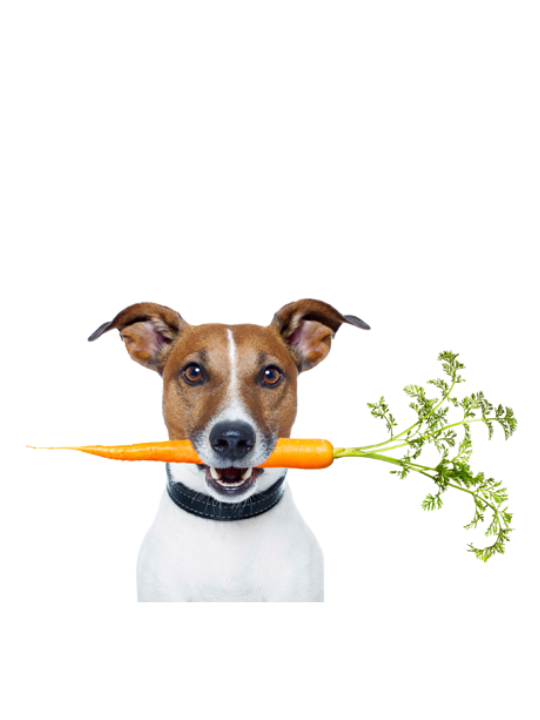
The first vegetable that is on my list is carrots.
Why?
First of all, carrots are a very low-calorie snack that most dogs I know love, including mine. They are very rich in beta-carotene, which is transformed by the liver into Vitamin A, a vitamin that is very needed for better vision and healthy skin for both humans and dogs.
They are full of antioxidants such as lutein, lycopene, and anthocyanins.
Carrots are a great source of magnesium, manganese, and phosphorus. Rich in vitamins C and K.
The high level of soluble fiber in carrots will help bulk the stool. But you should be careful if it’s your first time giving carrots, you should start with a small amount.
Now, you will probably ask how to include carrots in dogs’ diet or which form of them is better: raw or cooked?
Both cooked and raw carrots have their benefits for dogs, but for constipation cases, it’s better to be cooked.
The cooked carrots will give your dog around 40% of the carotene, while raw ones will only be 3%.
You can cook them in many ways such as boiled, steamed, baked, or roasted. But without any oils or seasonings.
If you want to try some recipes with carrots, here you will find 3 very good treats that my dog loves.
3. Coconut
I know that coconut isn’t a typical example of a food that you wonder if you can give to your dog on daily basis.
Which part of the coconut can be used for dogs with constipation?
As coconut water isn’t a good option because of its high content of potassium, then it should be away from dogs. Not only when dogs experience constipation but always because high levels of potassium tend to cause dehydration.
Then comes coconut oil but I personally don’t recommend it because if used inappropriate amounts can lead to pancreatitis, vomiting, or diarrhea. Diarrhea after constipation isn’t good, right?
Then what’s left?
Left the best part of the coconut. The coconut meat. The white tasty part. It’s so beneficial for our dogs that I don’t know why so little amount of people talk about it. It can reduce inflammation and the symptoms of arthritis.
It is known that coconut soothes pain, another aspect of constipation is the pain dogs experience.
4. Broccoli
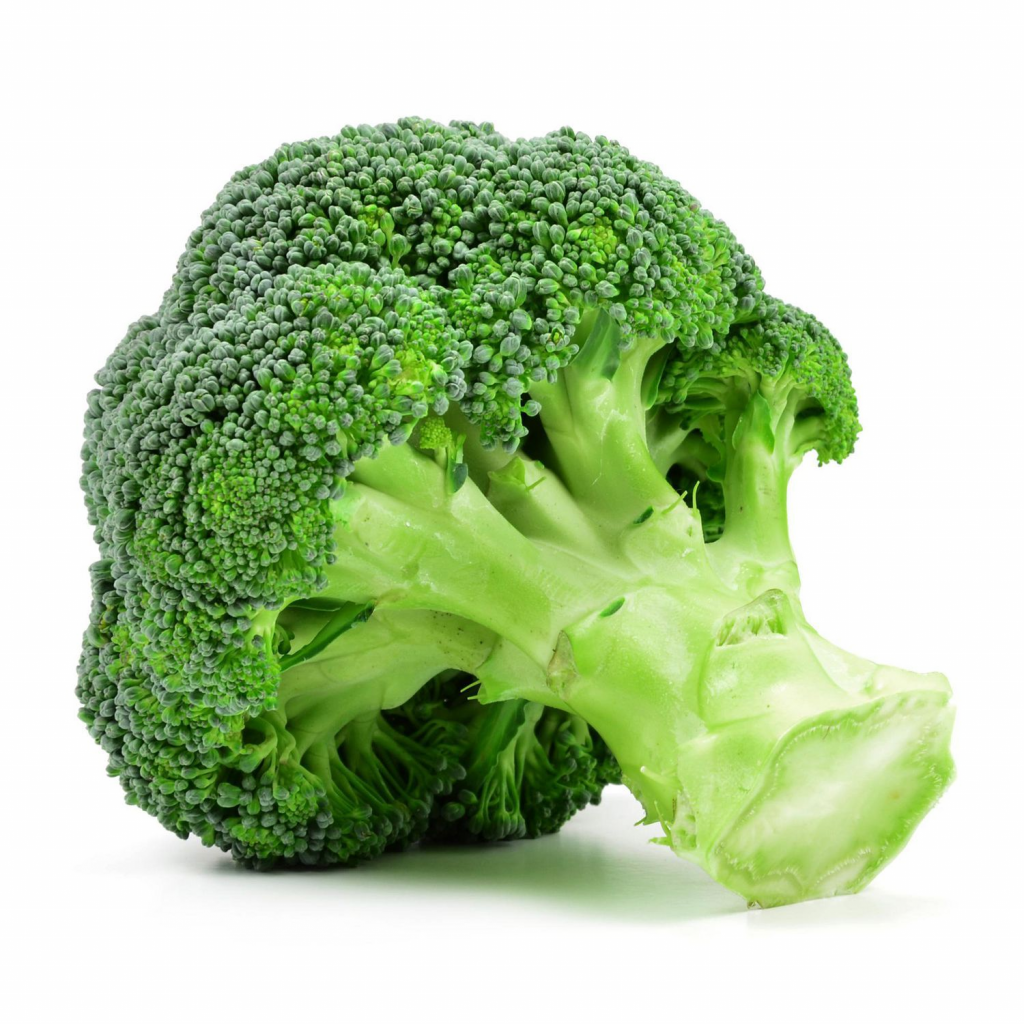
The green and crunchy broccoli is always a good idea to be included sometimes as a treat or as an addition to the main dog’s food.
Why?
Broccoli has a lot of fiber. It’s rich in vitamins like vitamin K and vitamin C, minerals like magnesium, sodium, and many others that all combined improve the immune system of our dogs so they don’t get sick.
And if you still don’t know let me say that again:
The main reason for mild constipation is the missing fiber in the dog’s diet.
So fiber is the main nutrient that helps the digestive system to go along.
Which part of broccoli is safe to be given to dogs?
Both stalks and florets are safe for dogs. They can be given cooked and raw but if you give them raw make sure to cut them into bite-sized pieces so they don’t cause choking in dogs.
kale
5. Milk

Milk is another home remedy that works much faster actually because it is faster digested but still you need to be careful with it.
Many lactose-intolerant dogs don’t have to take milk, just a bit of it is enough to make them poop. But I don’t recommend even a few drops because they can give your dog even more stomach problems and cause bad diarrhea.
But if you are sure that your dog doesn’t have any issues with milk, then feel free to give them some sips of warm milk. You can add a bit of ginger to it, too. Why ginger? Keep reading to understand.
6. Cauliflower
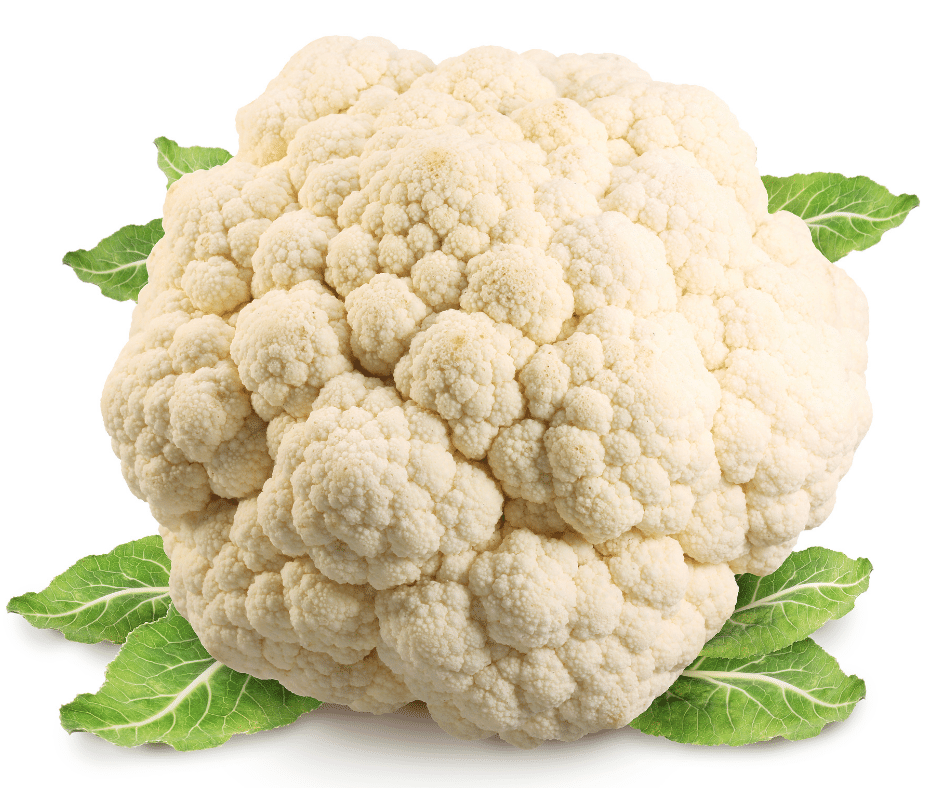
Cauliflower known also as white broccoli is an excellent choice for your dog. It’s so full of vitamins and minerals that in the right amounts it can help overall health.
This vegetable is good even for dogs with sensitive digestive systems as it’s not going to irritate the stomach and there are almost no cases of allergies to it from dogs.
Cauliflower is rich in fiber, Vitamin K, and antioxidants. The insoluble fiber in cauliflower will help with constipation or diarrhea.
Even if cauliflower doesn’t help with the constipation your dog is having, it’s a great veggie to boost the immune system and fight the free radicals in the body. Vitamin K is reducing the risk of heart disease and helps with proper blood clotting.
7. Ginger
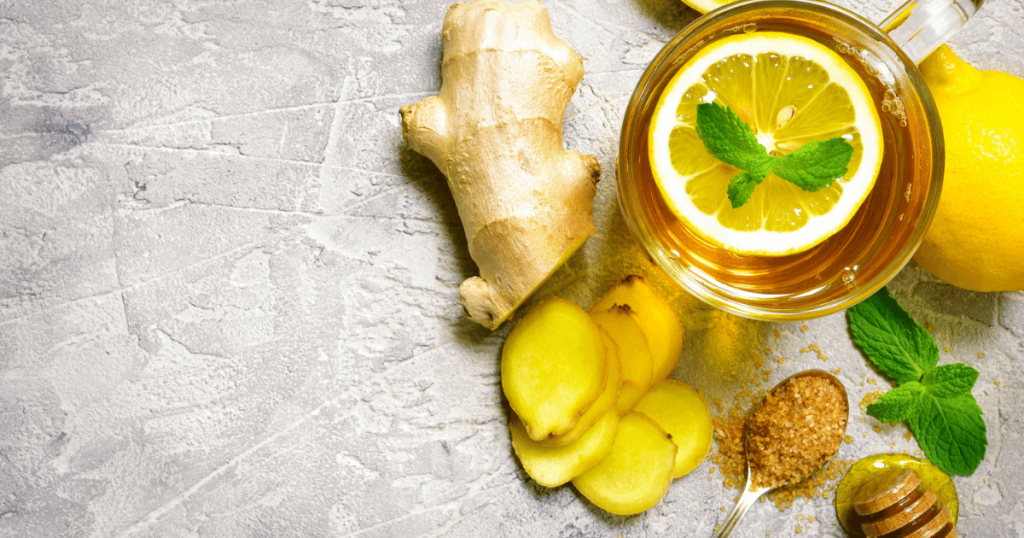
Ginger is one of the best herbs that can be part of the diet of your dog. It must be in small amounts but not every day and it will be really helpful for the immune system.
It’s a great herb for sick dogs too. Ginger can help with constipation and bloating. This home remedy stimulates the stomach juices and helps the moving in the bowels.
It works great for dogs with car or motion sickness. It’s a great remedy for worms too.
You can add ginger to your dog’s food or give them a dose when they feel down.
8. Green Beans
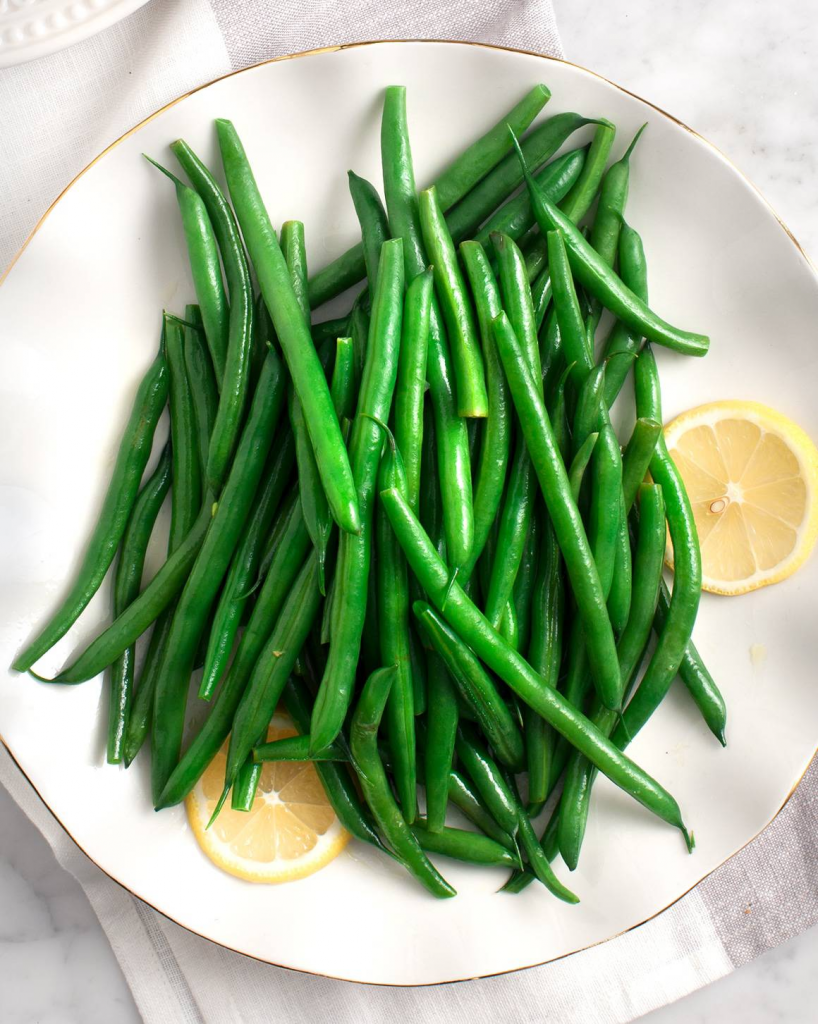
Another green veggie that is on my list is green beans. Add them to your dog’s food as they won’t add many calories but will give a solid amount of needed minerals and vitamins.
Dogs won’t eat raw green beans no matter how hard you try and you shouldn’t as raw green beans may cause choking.
Cooked green beans are high in fiber that helps to clean the colon of our dogs.
But how should they be cooked? Steaming many of the veggies is the best way to cook them but at the same time prevents a bit of nutritious loss.
9. Bananas

I am ending my list with fruit and it will be a banana.
High fiber contents present in bananas are important to your dog’s digestive system. Fiber can help to resolve intestinal problems like constipation, diarrhea, and some blockages that can occur in dogs.
Small dogs and puppies shouldn’t have more than 2 to 3 pieces and bigger dogs should have more than a half banana. That is because of the high content of sugar.
Make sure that your dog doesn’t eat banana peels as they will cause longer-lasting constipation.
6 Additional Tips for Faster Recovery
There are some tips that I want to share with you because I find them as helpful:
- Go more often on walks with your dog.
- Make sure your dog drinks enough water.
- Increase the dog’s physical activity. Doing this will for sure give the needed blood flow to the colon.
- Make sure that the dog’s diet contains foods rich in fiber.
- Add canned food to their diet to increase the moisture in food intake.
- Give them stomach massages:
- Make sure the dog is relaxed and on its back with its paws facing upward;
- Gently massage their stomach in small circular motions clockwise and counterclockwise for five minutes;
- After the initial five minutes are up, continue massaging for an additional five minutes in wider circular motions.
Conclusion
Dog constipation isn’t a joke or something that can be ignored. It can cause many complicated situations and health problems. If your dog hadn’t pooped for 24 to 36 hours, you should visit the nearest vet clinic as soon as possible.
I have shared with you many home remedies and tips. Don’t forget to take your dog for walks at least twice for 15 minutes and don’t forget the fiber that the dog needs to produce normal stool on daily basis.
If you think I have skipped something important let me know in the comments and also you can share with us which of these home remedies you have tried and if they have worked for your doggo.

